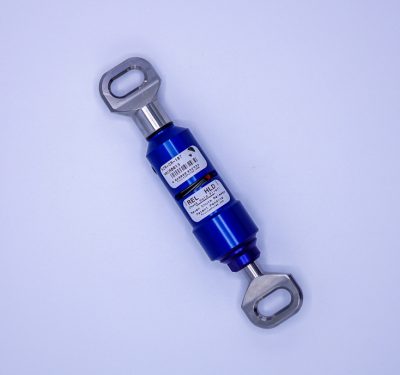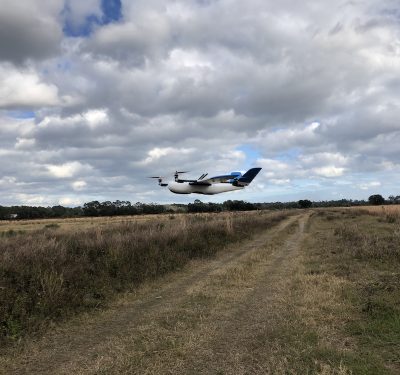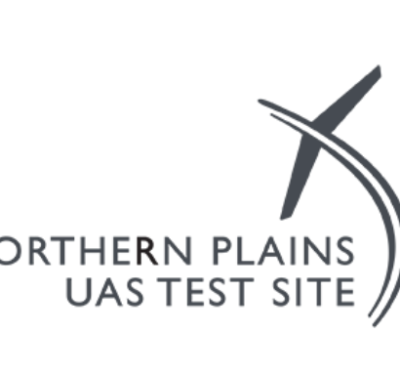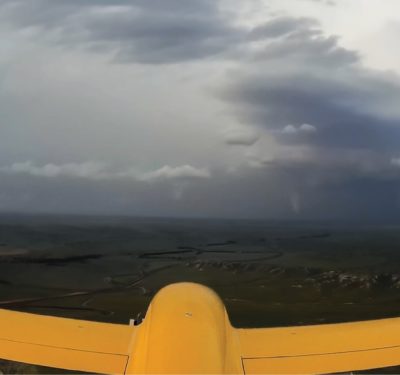Alicante-based Embention is a leading provider of high-reliability autopilot systems and components for all kinds of unmanned aerial vehicles. Since 2007, the company has been a true air mobility innovator, providing cutting-edge solutions for defense and industrial drone applications.
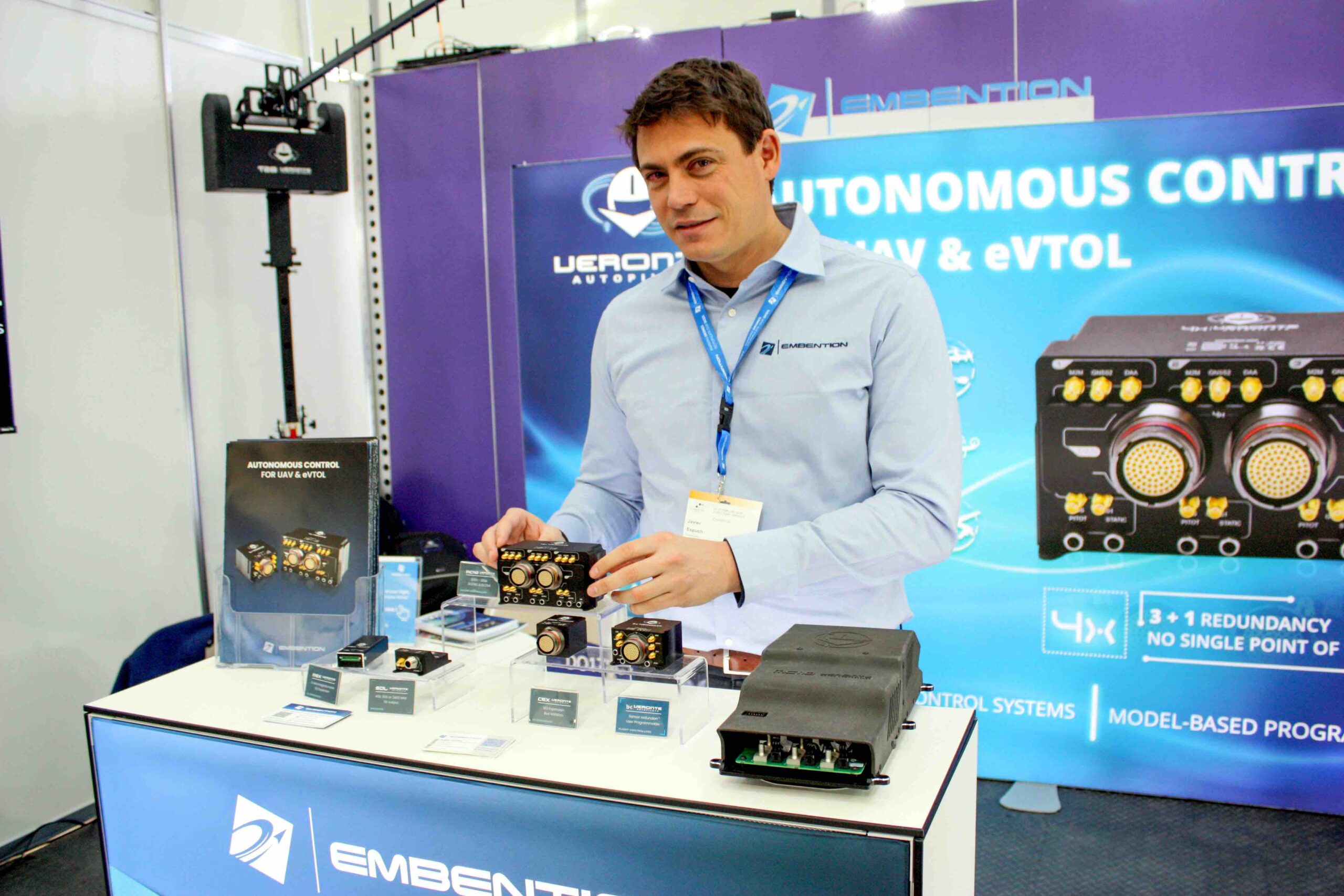
“Our core product is the autopilot, the flight controllers,” said Javier Espuch, Embention Chief Business Development Officer. Speaking to Inside Unmanned Systems at the Xponential UAV show in Dusseldorf, Germany, he explained: “We have three versions. The first is our single core autopilot. Then we have embedded redundancy, with three autopilot cores inside, and then we have distributed redundancy where we have three autopilots that can be placed in different areas of the aircraft.”
Embention systems are being used by around 700 customers around the world. “We’re flying all kinds of drones,” said Espuch, “from fixed-wings, helicopters, multi-rotor, VTOLs, all using the same software.” In addition to autopilots and flight control systems, the company supplies ground control and mission software, navigation and redundancy systems, payload and peripheral integration, and certification and compliance support.
Standards and certification
Crucial to Embention customers, all systems are developed in compliance with design objective (DO) standards for avionics in safety-critical aerospace applications. Developed in part by the Radio Technical Commission for Aeronautics (RTCA), these standards provide industry-accepted best practices for avionics but do not define specific performance thresholds.
“We follow the DO178C standard for software, DO254 for hardware and DO160 for environmental testing,” Espuch said. “We think that in the long term all drones will need to have certified electronics. The regulatory situation is moving forward in the U.S. and in Europe, but we still have some work to do, specifically on the autopilot side. Today, there is no PSO that we can use to certify a drone autopilot.”
PSOs are performance standard objectives. Unlike DOs, PSOs establish specific, measurable safety performance criteria that must be met for certification by regulatory authorities like the European Union Aviation Safety Agency (EASA) and the Federal Aviation Administration (FAA). While PSOs do exist for traditional avionics, i.e. in manned aircraft, there is no universally accepted PSO certification standard, as Espuch mentioned, for drone autopilots.
“We are part of an EASA working group that is defining new PSOs for UAVs,” he said, “so we expect something to be released at some point, but it’s difficult to say when. This is why we’ve decided to move forward using the PSOs from traditional manned aviation, because our customers are demanding it today. In any case, we think that the manned aviation PSOs will be more strict than the ones they come up with for drones, so we’re trying to go faster than the regulators in this area.”
The Embetion display was a center of attention at Xponential UAV in Dusseldorf. “We’ve been exhibiting at Xponential in the U.S. for the last 13 years,” Espuch said, “so when we heard it was coming to Europe we knew we had to be here. And so far we’re quite happy; we’re seeing a lot of people and talking about real projects.”


